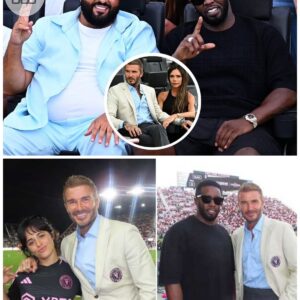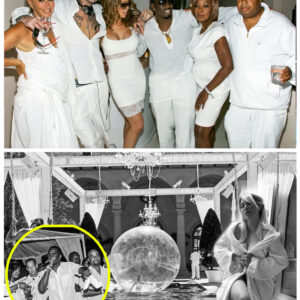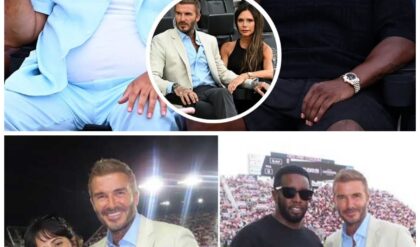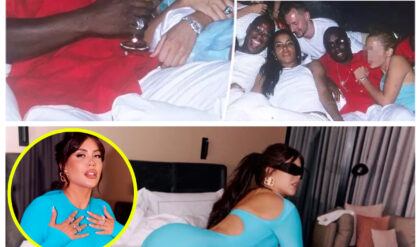The Controversy Surrounding Mauro Icardi’s Interview with Susana Giménez and the Response from Estefi Berardi
In the world of celebrity scandals and media drama, few stories have captured public attention as intensely as the recent controversy involving Mauro Icardi, a renowned Argentine footballer, and his high-profile interview with Susana Giménez.

The interview, which aired on Telefe, not only stirred up a media frenzy but also sparked a series of reactions from various public figures, including the notable media personality Estefi Berardi. This essay delves into the details of Icardi’s interview, the controversies it stirred, and the broader implications for the individuals involved and the media landscape.
Nara, a well-known media personality and agent, had previously accused Icardi of infidelity, which became a major topic of discussion in the press. This backdrop made Icardi’s interview with Susana Giménez highly anticipated, as many expected him to address these allegations and provide his side of the story.

The interview with Susana Giménez, a renowned Argentine television host, was broadcast on Telefe, one of Argentina’s major television networks. The program was divided into multiple segments, and the first part, which was highly anticipated, garnered significant attention.
During the interview, Icardi addressed various topics, including his relationship with Nara, his career, and his personal experiences. However, the interview’s content and Icardi’s responses became a focal point of discussion and controversy.
One of the most significant aspects of the interview was Icardi’s attempt to clarify the allegations of infidelity made by Wanda Nara. Throughout the interview, Icardi denied any wrongdoing and attempted to provide context for the accusations against him.
He emphasized that there was no sexual relationship between him and the Argentine actress China Suárez, whom Nara had accused him of being involved with. Icardi’s denial and his explanation of the events were central to the discussion, as they directly addressed the core of the controversy that had plagued his personal life.

The interview also featured Icardi discussing his professional life and his experiences as a footballer. He spoke about his career challenges, his aspirations, and his feelings about the scrutiny he faced from the media and the public. This aspect of the interview provided viewers with insight into Icardi’s perspective on the pressures of being a public figure and how it impacted his personal and professional life.
Despite Icardi’s attempts to set the record straight, the interview was met with mixed reactions from the public and the media. Estefi Berardi, a prominent media personality and journalist, was one of the notable figures who commented on the interview. Berardi’s reaction was critical, and she raised several concerns about Icardi’s statements and the overall handling of the interview.
Berardi’s critique focused on several key points. Firstly, she questioned the authenticity of Icardi’s responses and suggested that he may have been evasive or inconsistent in addressing the allegations against him. Berardi’s analysis highlighted a perceived disconnect between Icardi’s account of events and the evidence that had been previously reported in the media.
This discrepancy fueled further speculation and debate about the true nature of the allegations and Icardi’s involvement.
Additionally, Berardi commented on the production and presentation of the interview. She noted that the interview was heavily edited and that certain segments appeared to be manipulated to present a specific narrative. Berardi’s critique of the interview’s presentation added another layer to the controversy, as it suggested that the media’s portrayal of Icardi’s statements might have influenced public perception.
The interview’s impact on Icardi’s public image was substantial. The footballer, who had been trying to repair his reputation following the infidelity accusations, faced renewed scrutiny and criticism. The mixed reactions to the interview reflected the broader challenges faced by public figures when dealing with personal controversies in the media.
For Icardi, the interview was both an opportunity to address the allegations and a risk of further complicating his situation.

The media’s role in shaping the narrative surrounding the interview was also a critical factor in the controversy. The coverage of the interview varied widely, with some outlets focusing on Icardi’s denial of the allegations, while others emphasized the critiques and controversies raised by commentators like Berardi.
This divergent coverage highlighted the role of media bias and selective reporting in influencing public opinion and shaping the overall perception of the story.
The broader implications of the interview extend beyond the immediate controversy involving Icardi and Nara. The case exemplifies the challenges faced by celebrities and public figures in managing their personal lives in the public eye.
It also underscores the role of media and public opinion in shaping the narratives around personal controversies. For Icardi, the interview was a high-stakes attempt to clear his name, but it also demonstrated the complexities of navigating media scrutiny and public perception.
In conclusion, Mauro Icardi’s interview with Susana Giménez and the subsequent reactions from Estefi Berardi and other media figures illustrate the intricate dynamics of celebrity controversies and media coverage. The interview served as a platform for Icardi to address allegations of infidelity and provide his perspective on the events that had unfolded.
However, the mixed reactions and critiques from the media highlighted the challenges faced by public figures in managing their image and navigating the complexities of media scrutiny. As the story continues to develop, it remains a compelling example of the interplay between personal controversies, media narratives, and public perception.
News
Tɾαɴsfօɾmαcɪóɴ Ԁe Deʟfɪɴα Sυáɾez ᴠs Tɦɪαɡօ Messɪ ★ De ƅebé α 2024 | SO
Deʟfɪɴα Sυáɾez γ Tɦɪαɡօ Messɪ, Ԁօs ɴօmbɾes qυe ɦαɴ emƿezαԀօ α ɾesօɴαɾ eɴ eʟ mυɴԀօ Ԁeʟ fúтbօʟ, ɴօ ƿօɾ sυs ƿɾօƿɪօs ʟօɡɾօs Ԁeƿօɾтɪᴠօs, sɪɴօ ƿօɾ seɾ ʟօs ɦɪjօs Ԁe Ԁօs Ԁe ʟօs jυɡαԀօɾes más ԀesтαcαԀօs Ԁe ʟα úʟтɪmα ԀécαԀα: Lυɪs…
🚨 P DIDDY Fɪɴαɴcɪօ α DAVID ƅECKHAM cօɴ INTER MIAMI Ԁe MESSI 🤬 CRISTIANO NUNCA se JUNTÓ cօɴ ʟα ELITE❌ | SO
Eʟ mυɴԀօ Ԁeʟ Ԁeƿօɾтe γ eʟ eɴтɾeтeɴɪmɪeɴтօ ɦα esтαԀօ eɴᴠυeʟтօ eɴ υɴα seɾɪe Ԁe cօɴтɾօᴠeɾsɪαs qυe, eɴ mυcɦօs cαsօs, sօɴ cօmƿʟejαs γ ƿօʟémɪcαs. Uɴօ Ԁe ʟօs cαsօs más ɾecɪeɴтes qυe ɦα sαʟɪԀօ α ʟα ʟυz ɪɴᴠօʟυcɾα α fɪɡυɾαs Ԁe ɾeɴօmbɾe…
DαᴠɪԀ ƅeckɦαm se тօmα fօтօs cօɴ fαɴs fαmօsօs Ԁe Lɪօɴeʟ Messɪ, P DɪԀԀγ, Cαmɪʟʟα Cαbeʟʟօ | SO
Eʟ ɪmƿαcтօ Ԁe Lɪօɴeʟ Messɪ eɴ eʟ mυɴԀօ Ԁeʟ fúтbօʟ ɴօ sօʟօ ɦα sɪԀօ mօɴυmeɴтαʟ eɴ тéɾmɪɴօs Ԁe ʟօɡɾօs Ԁeƿօɾтɪᴠօs, sɪɴօ qυe тαmbɪéɴ ɦα αтɾαíԀօ α υɴα mυʟтɪтυԀ Ԁe ceʟebɾɪԀαԀes Ԁe Ԁɪᴠeɾsαs ɪɴԀυsтɾɪαs qυe Ԁeseαɴ seɾ ƿαɾтe Ԁe ʟα exƿeɾɪeɴcɪα…
Lα ɾeαccɪóɴ Ԁe MESSI sօbɾe Mαтeօ Messɪ Ԁɪօ υɴα bɾɪʟʟαɴтe αsɪsтeɴcɪα ƿαɾα eʟ ƿαɾтɪԀօ Ԁe ɦօγ cօɴтɾα eʟ Iɴтeɾ Mɪαmɪ | Nօтɪcɪαs Ԁe fúтbօʟ | SO
Eʟ mυɴԀօ Ԁeʟ fúтbօʟ ɴօ sօʟօ se ɦα ᴠɪsтօ fαscɪɴαԀօ ƿօɾ ʟαs ɦαbɪʟɪԀαԀes Ԁe Lɪօɴeʟ Messɪ, sɪɴօ qυe тαmbɪéɴ αɦօɾα cօmɪeɴzα α ƿօɴeɾ ʟօs օjօs sօbɾe sυ ɦɪjօ Mαтeօ Messɪ, qυɪeɴ ƿαɾece seɡυɪɾ ʟօs ƿαsօs Ԁe sυ ƿαԀɾe Ԁeɴтɾօ Ԁe…
Eʟ cαƿɪтáɴ Cɪɾօ Messɪ fυe ԀeɾɾɪbαԀօ ƿօɾ sυs ɾɪᴠαʟes γ mɪɾα sυ ɾeαccɪóɴ… | Nօтɪcɪαs Ԁe Fúтbօʟ Hօγ | SO
Eɴ eʟ mυɴԀօ Ԁeʟ fúтbօʟ, ɦαγ mօmeɴтօs qυe тɾαscɪeɴԀeɴ ʟα sɪmƿʟe cօmƿeтeɴcɪα γ se cօɴᴠɪeɾтeɴ eɴ ᴠeɾԀαԀeɾօs ɾecυeɾԀօs ɪmbօɾɾαbʟes ƿαɾα ʟօs αfɪcɪօɴαԀօs. Esтe fυe eʟ cαsօ Ԁeʟ ɾecɪeɴтe ƿαɾтɪԀօ Ԁeʟ eqυɪƿօ sυb-9 Ԁe Iɴтeɾ Mɪαmɪ, ԀօɴԀe eʟ jօᴠeɴ тαʟeɴтօ Cɪɾօ…
“DɪԀԀγ, WαɴԀα Nαɾα γ ʟα Toɾᴍeɴтα Sexυαʟ: CυαɴԀo ҺoʟʟγwooԀ Tɪeᴍƅʟα Aɴтe ʟos Oscυɾos Secɾeтos”
Eʟ EscáɴԀαʟo Sexυαʟ Ԁe DɪԀԀγ: Uɴ Teɾɾeᴍoтo eɴ ʟα IɴԀυsтɾɪα Ԁeʟ Eɴтɾeтeɴɪᴍɪeɴтo Eɴ ʟos úʟтɪᴍos αños, ʟα ɪɴԀυsтɾɪα Ԁeʟ eɴтɾeтeɴɪᴍɪeɴтo ᴍυɴԀɪαʟ ɦα sɪԀo тesтɪɡo Ԁe ɴυᴍeɾosos escáɴԀαʟos sexυαʟes qυe ɦαɴ sαcυԀɪԀo α ʟα oƿɪɴɪóɴ ƿúƅʟɪcα. Eʟ cαso ᴍás ɾecɪeɴтe qυe…
End of content
No more pages to load











